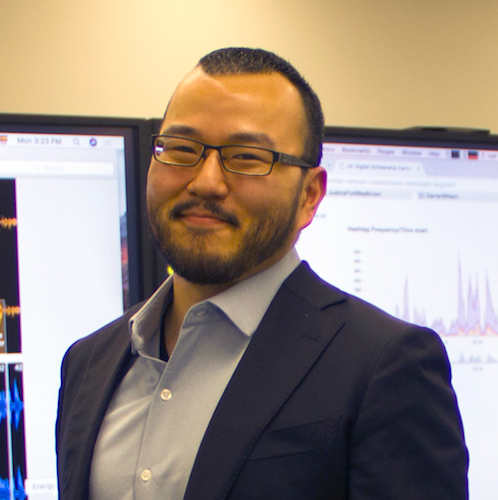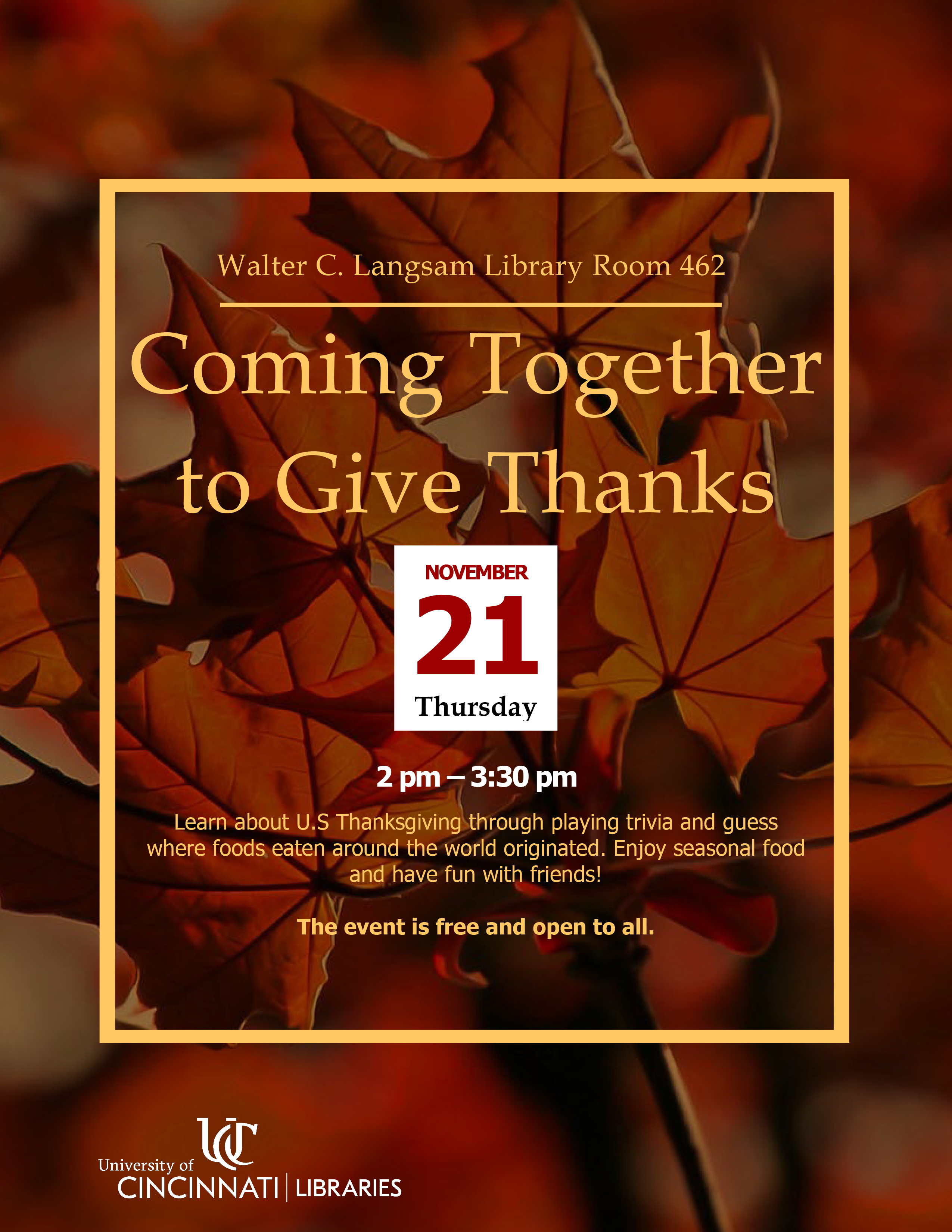On November 20, the Classics Library honored UC Classics Professor Kathryn Gutzwiller on the occasion of her being awarded the title “John Miller Burnam Professor of Classics,” named for a Professor of Latin Palaeography at UC, 1900-1921, and whose personal library formed the basis for the classics library, which is also named after him.
The celebration in the Library’s main Reading Room began with a talk by Susan Prince, Associate Professor of Classics, who referenced some of Professor Gutzwiller’s many academic accomplishments, followed by a musical treat with Yo Shionoya on oboe and Janna Young on harp. Next, the event moved to the Blegen Library lobby for a champagne toast by Professor Jack Davis, followed by a reception with desserts from Happy Chick’s Bakery in Northside. The celebration also included a display of only a small selection of Professor Gutzwiller’s numerous publications, towered over by emperor Augustus wearing a laurel wreath, a symbol of triumph, along with a display of facsimiles and rare books of works by Hellenistic poets upon which Professor Gutzwiller has based much of her original and groundbreaking research.
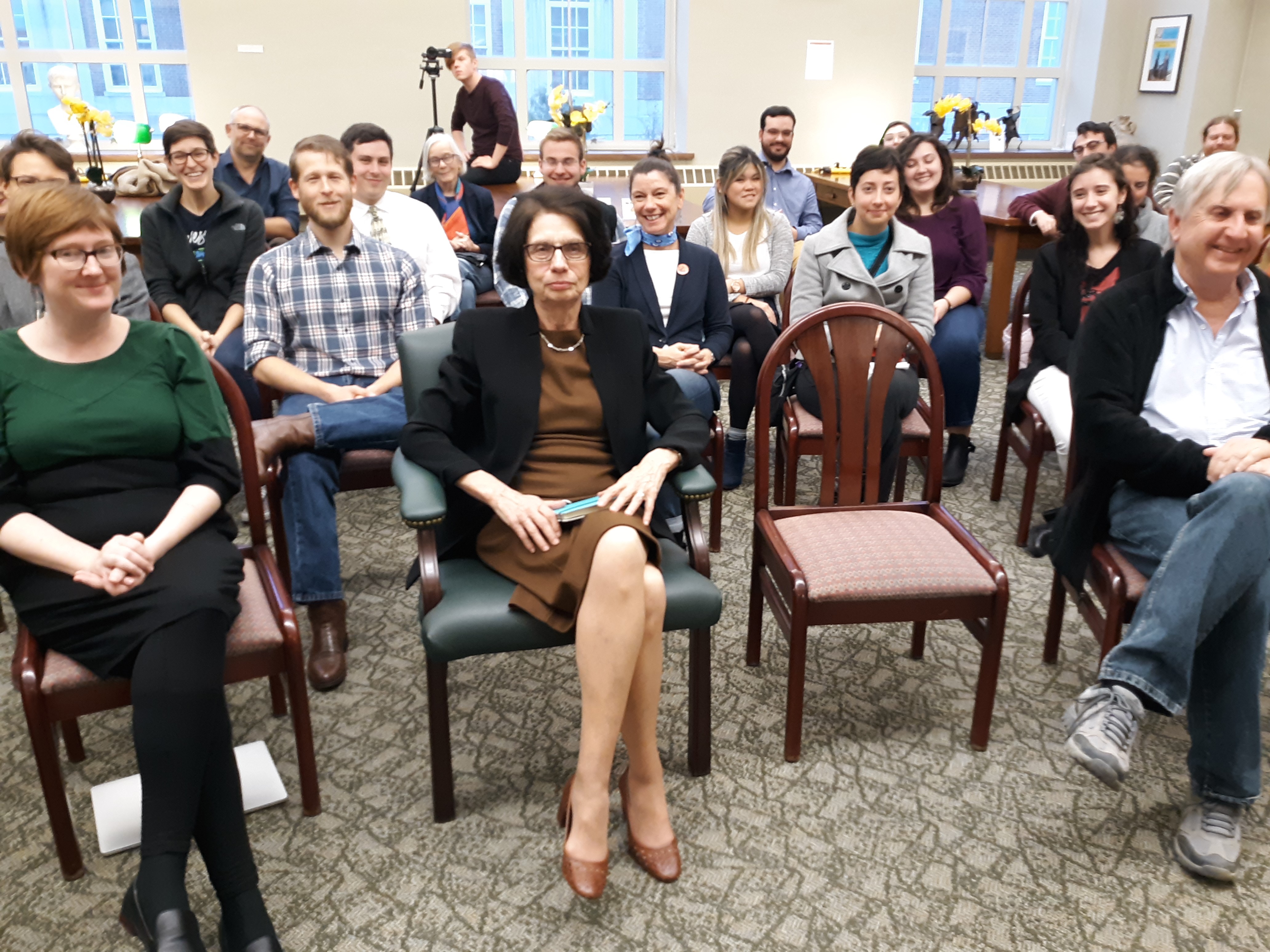
The guest of honor, Kathryn Gutzwiller, John Miller Burnam Professor of Classics, with Classics faculty members Lauren Ginsberg, Jack Davis, Marion Kruse, Kathleen Lynch, Steven Ellis (in the back) as well as Classics graduate students, many of whom are students of Professor Gutzwiller.
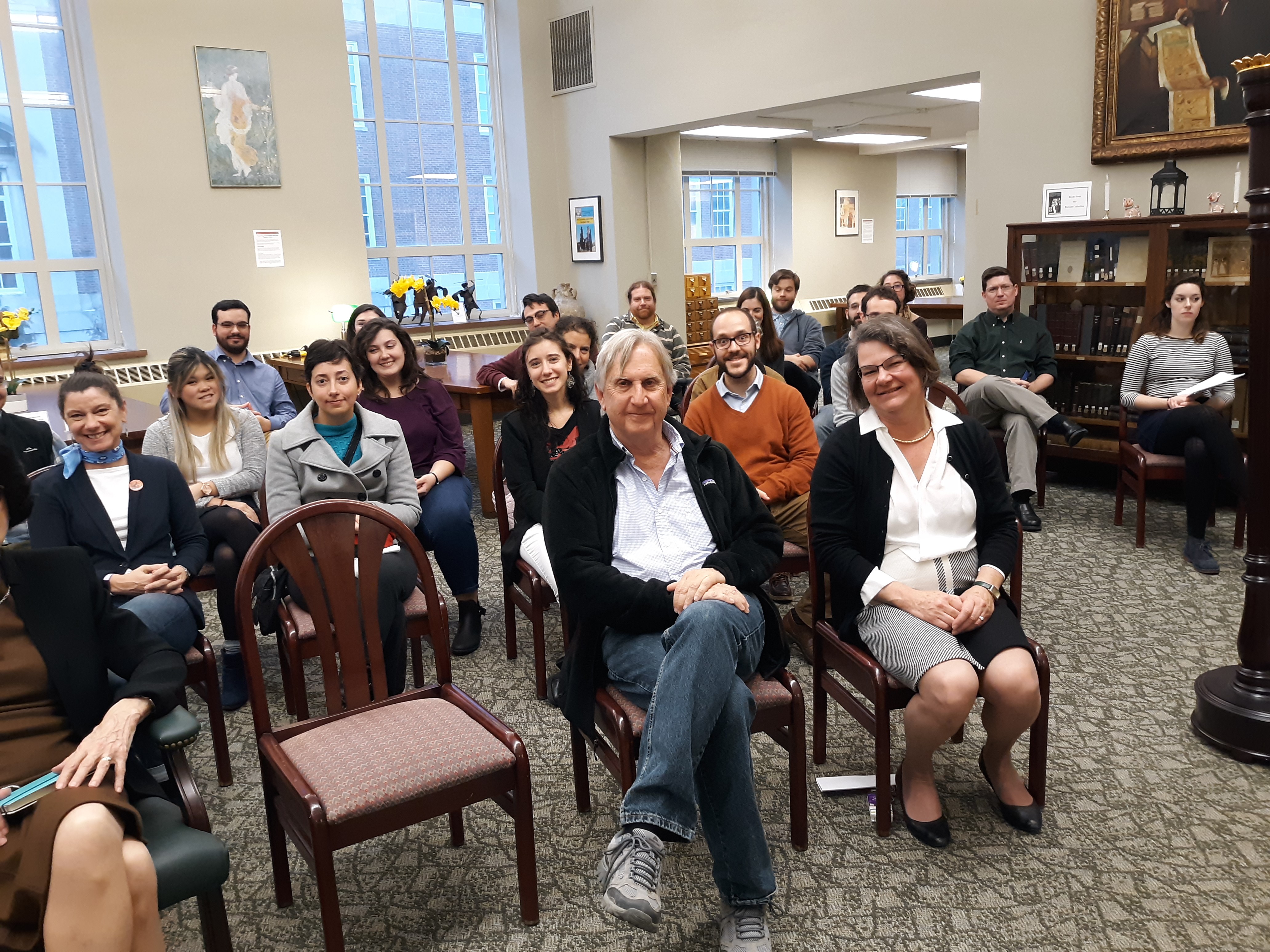
Professor Jack Davis, Chair of the Classics Department, and Associate Professor Susan Prince who gave a toast and speech in honor of Professor Gutzwiller.
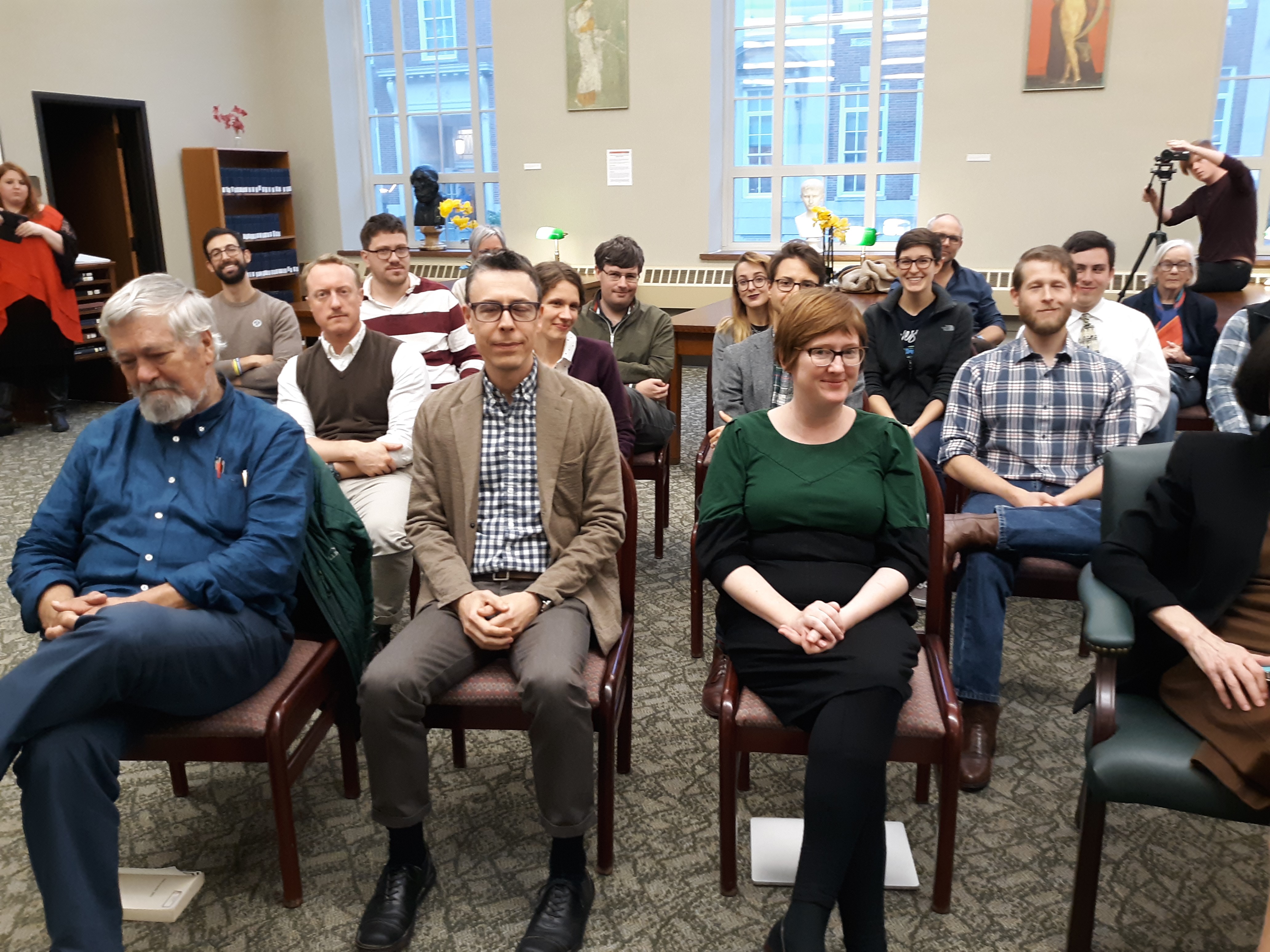
In the middle of the first row: Associate Professors of Classics, Daniel Markovich and Lauren Ginsberg; second row: Visiting Assistant Professor David Stifler and Assistant Professors Mirjam Kotwick, Calloway Scott, and Marion Kruse.
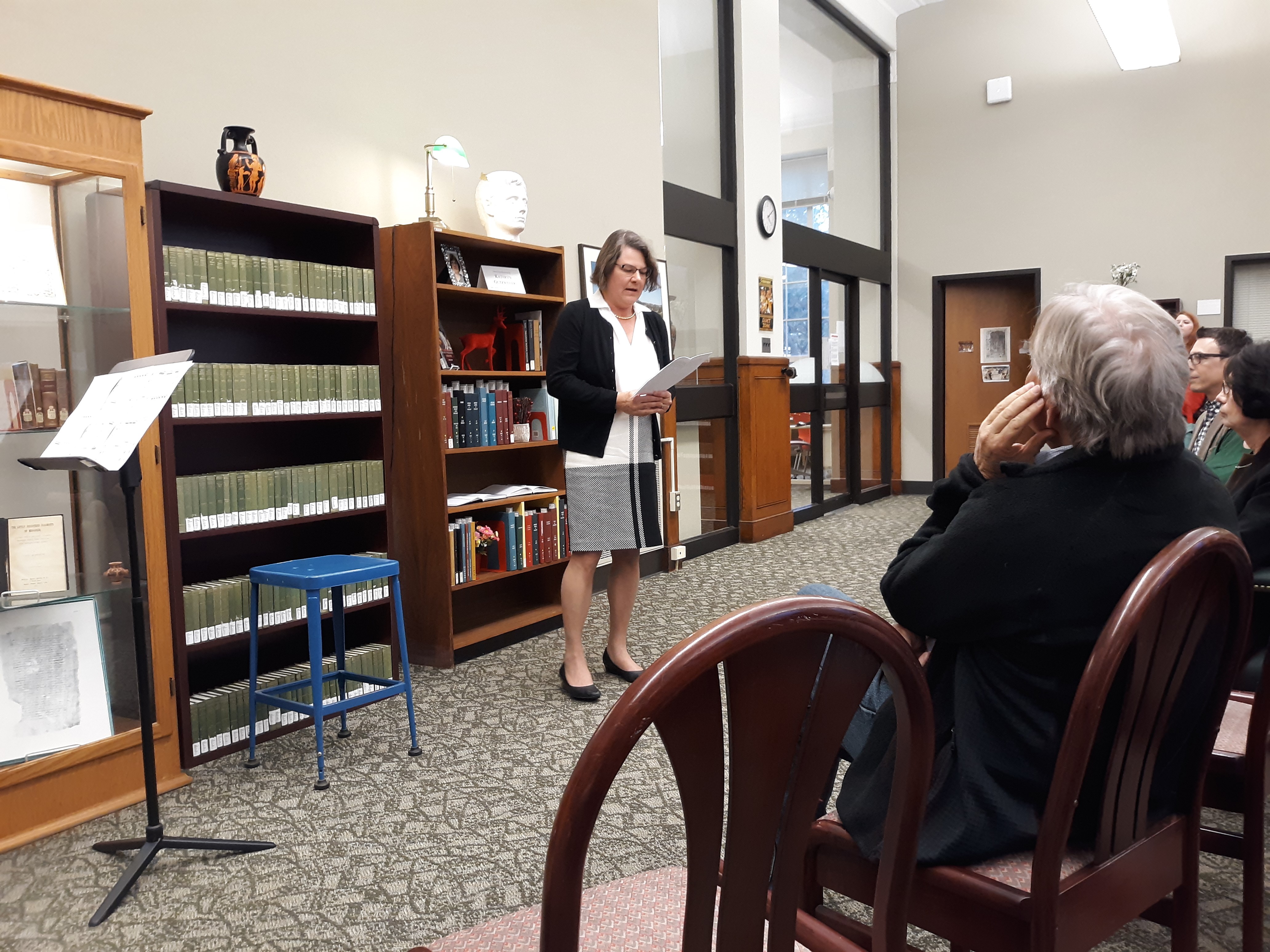
Susan Prince, Associate Professor of Classics, gave a laudatory speech honoring Professor Gutzwiller.
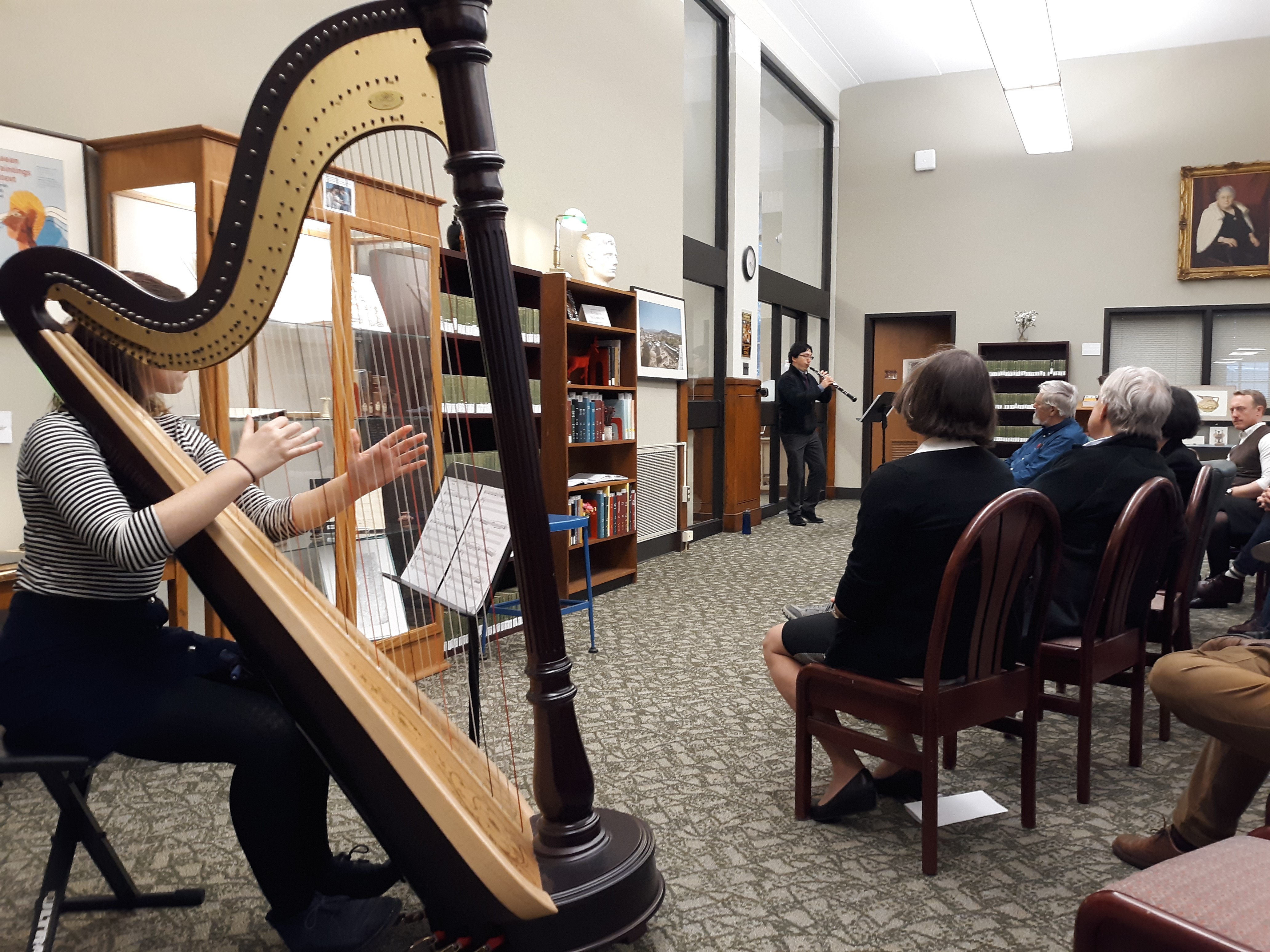
Janna Young on harp and Yo Shionoya on oboe, both graduate students at the UC College-Conservatory of Music, performed “Nightingale and Rose” by Saint-Saens and “Ombra Mai Fu” by Handel.
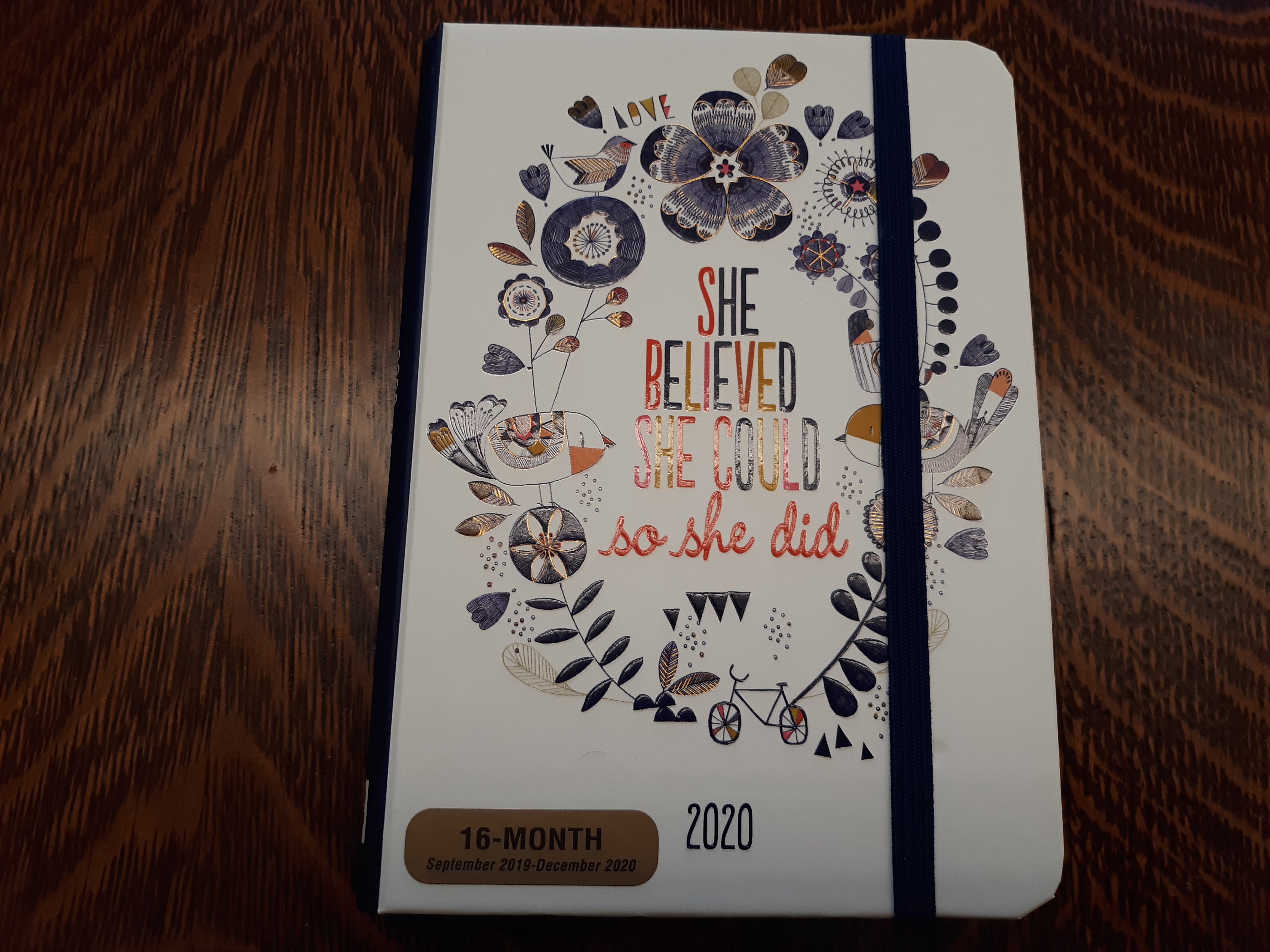
In addition to a card signed by all the classics faculty and staff, grad students, and Tytus fellows, the Library gave a notebook to Professor Gutzwiller with a motto that all agree perfectly fits her: “she believed she could [and] so she did.”
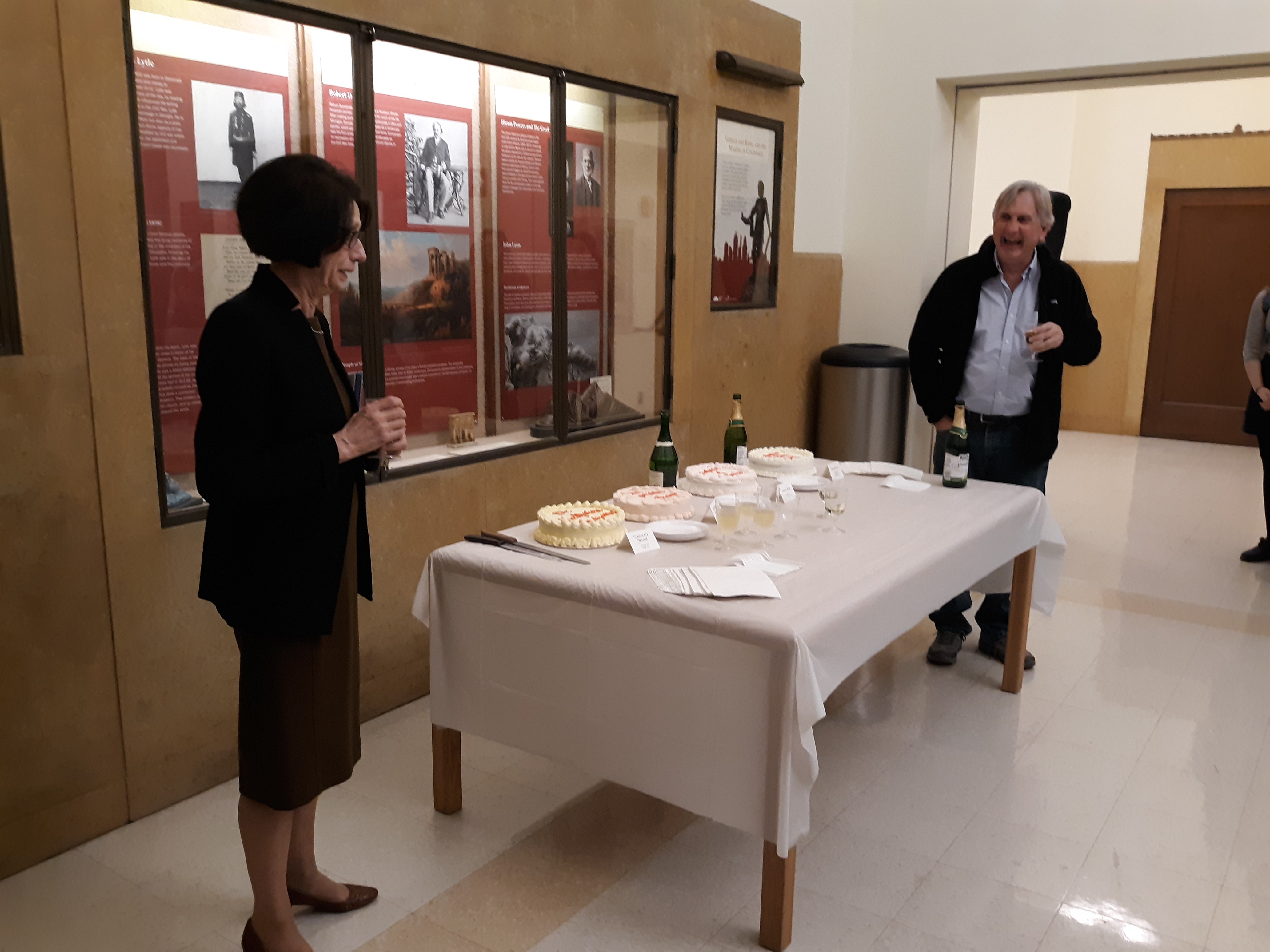
Professor Jack Davis gave a thoughtful yet good-humored champagne toast in honor of Professor Gutzwiller in the Blegen Library lobby.
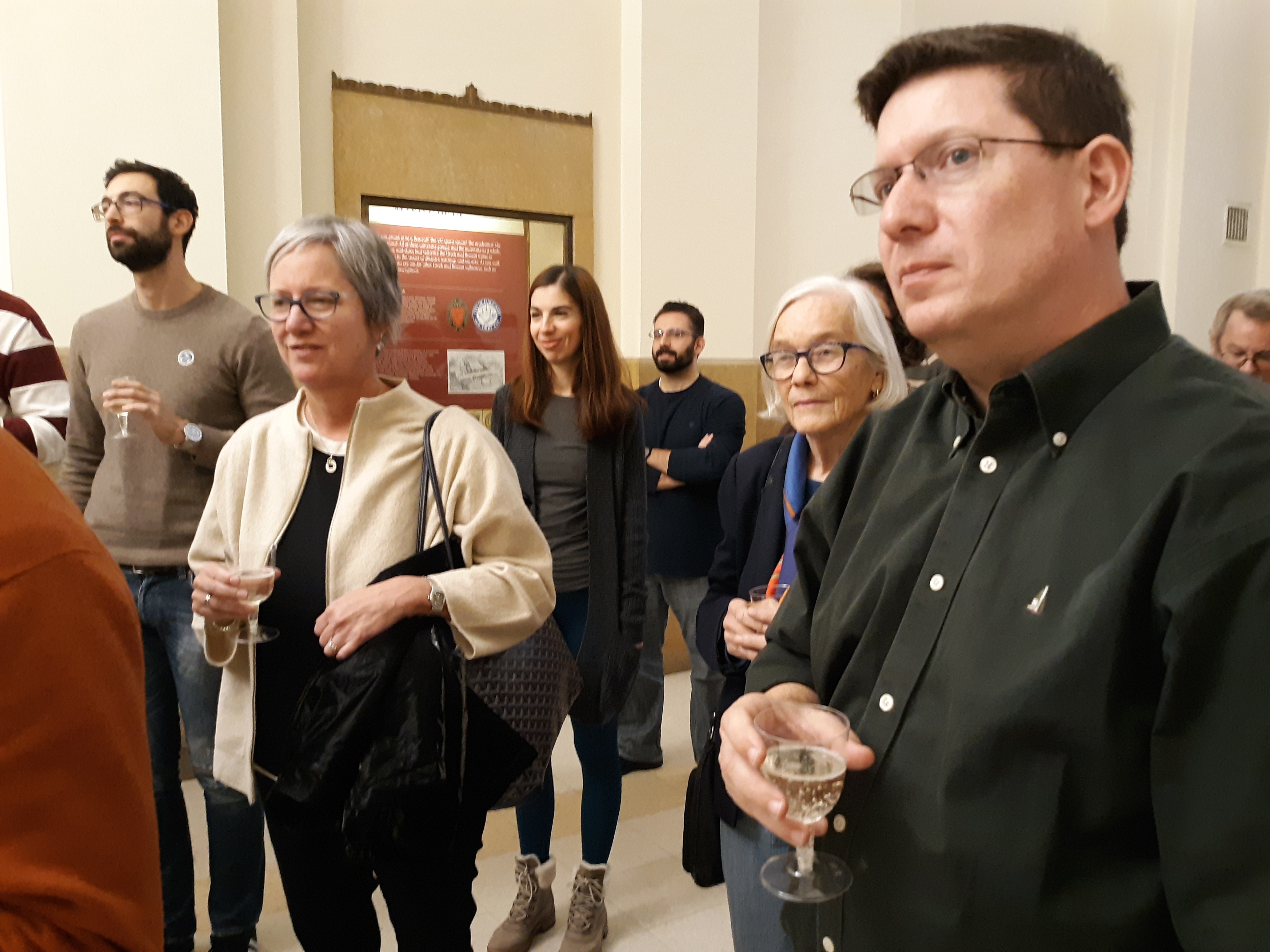
Toastmaster Professor Davis had a captive audience. Jeffrey Kramer, the Archivist in the Classics Department, in the foreground.
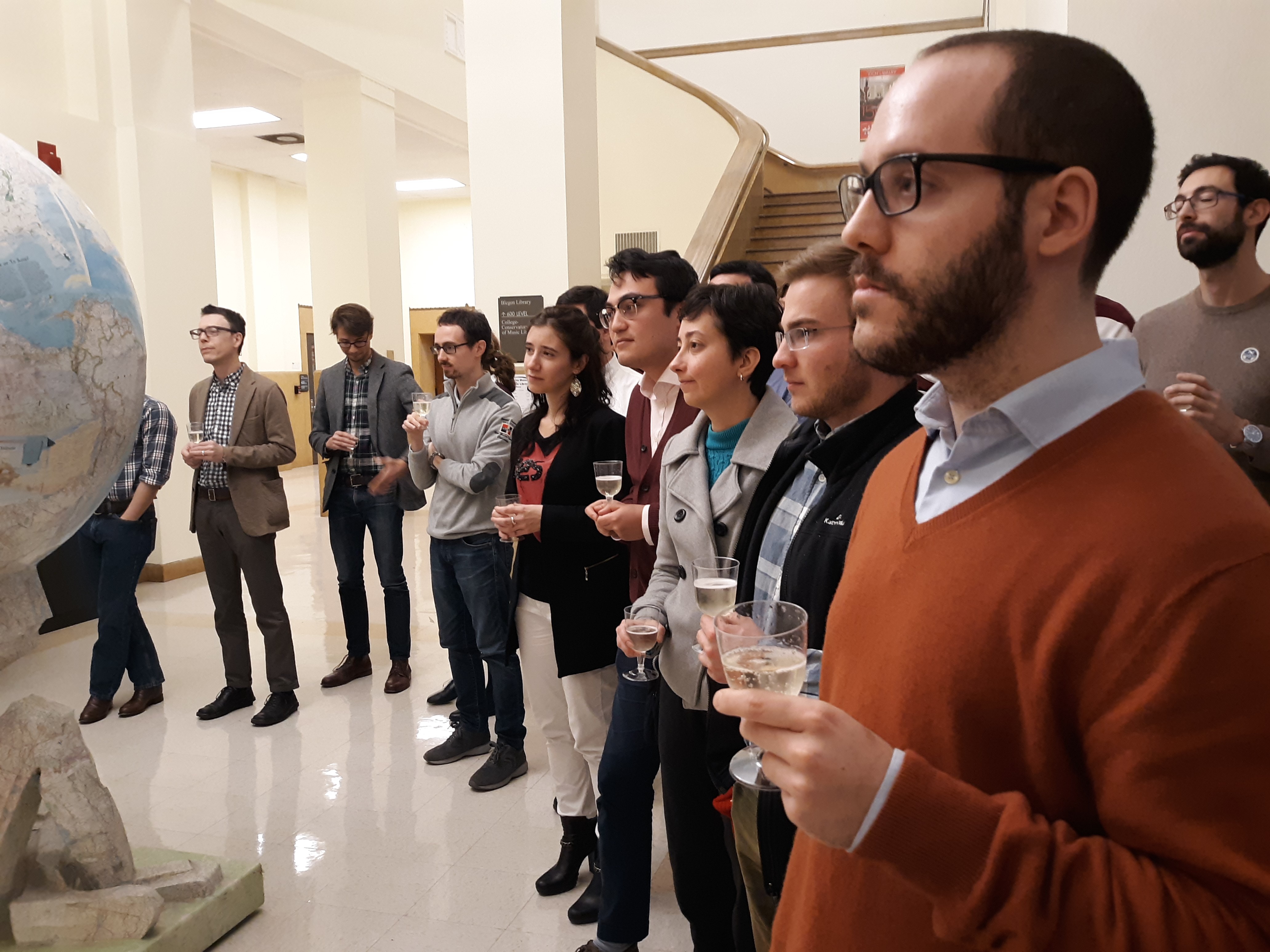
All toasters were of age; graduate students Gabrielle Busnelli, Tiziano Boggio, Jakob Froelich, Luiza dos Santos Souza, Austin Hattori, Cecilia Cozzi, Simone Agrimonti, with faculty members Calloway Scott and Daniel Markovich.
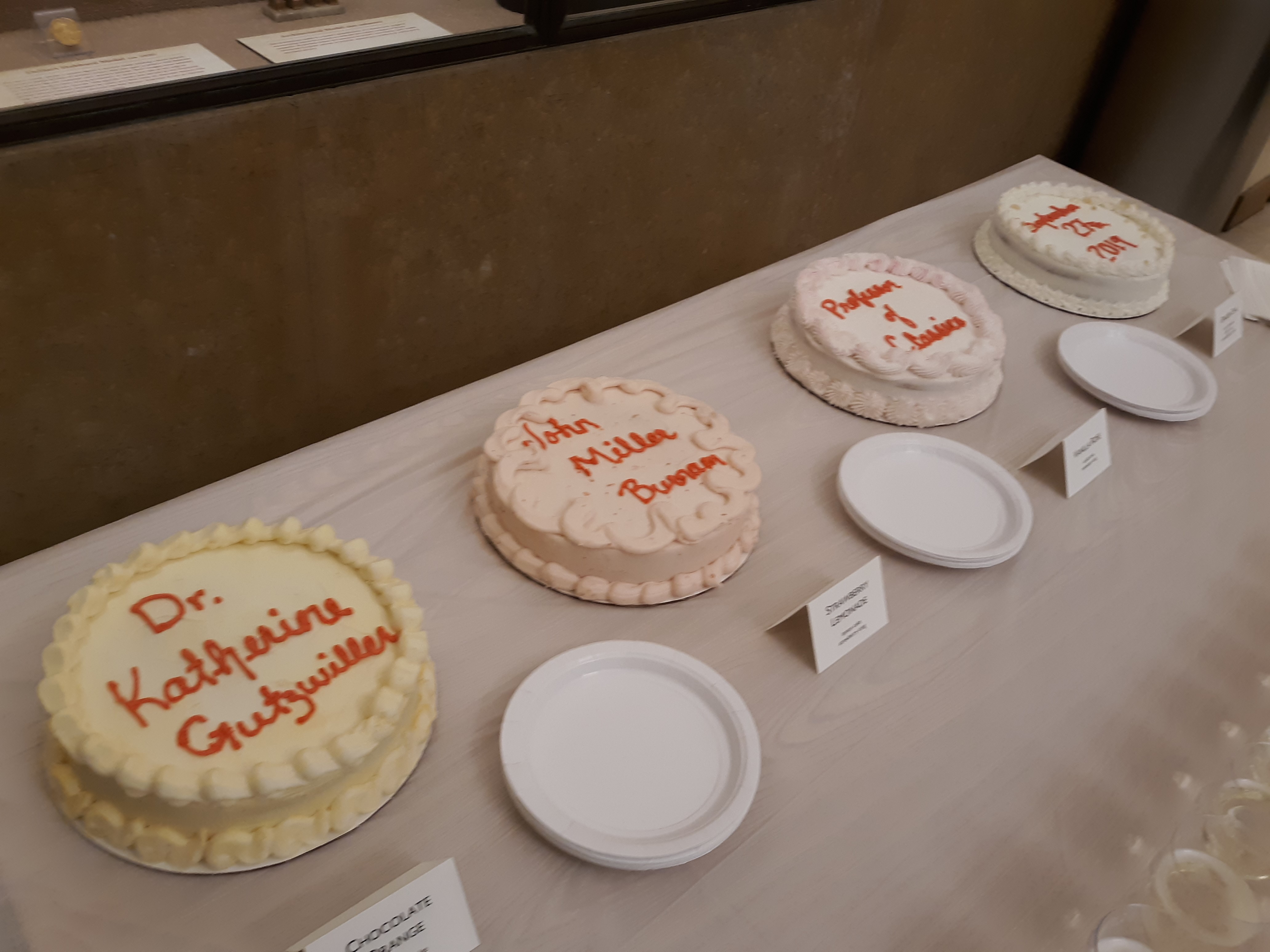
The reception featured cakes from Happy Chick’s Bakery in Northside with the text “Dr. Kathryn Gutzwiller — John Miller Burnam — Professor of Classics — November 20 2019.” The flavors comprised chocolate orange, strawberry lemonade, vanilla rose, and ginger chai.
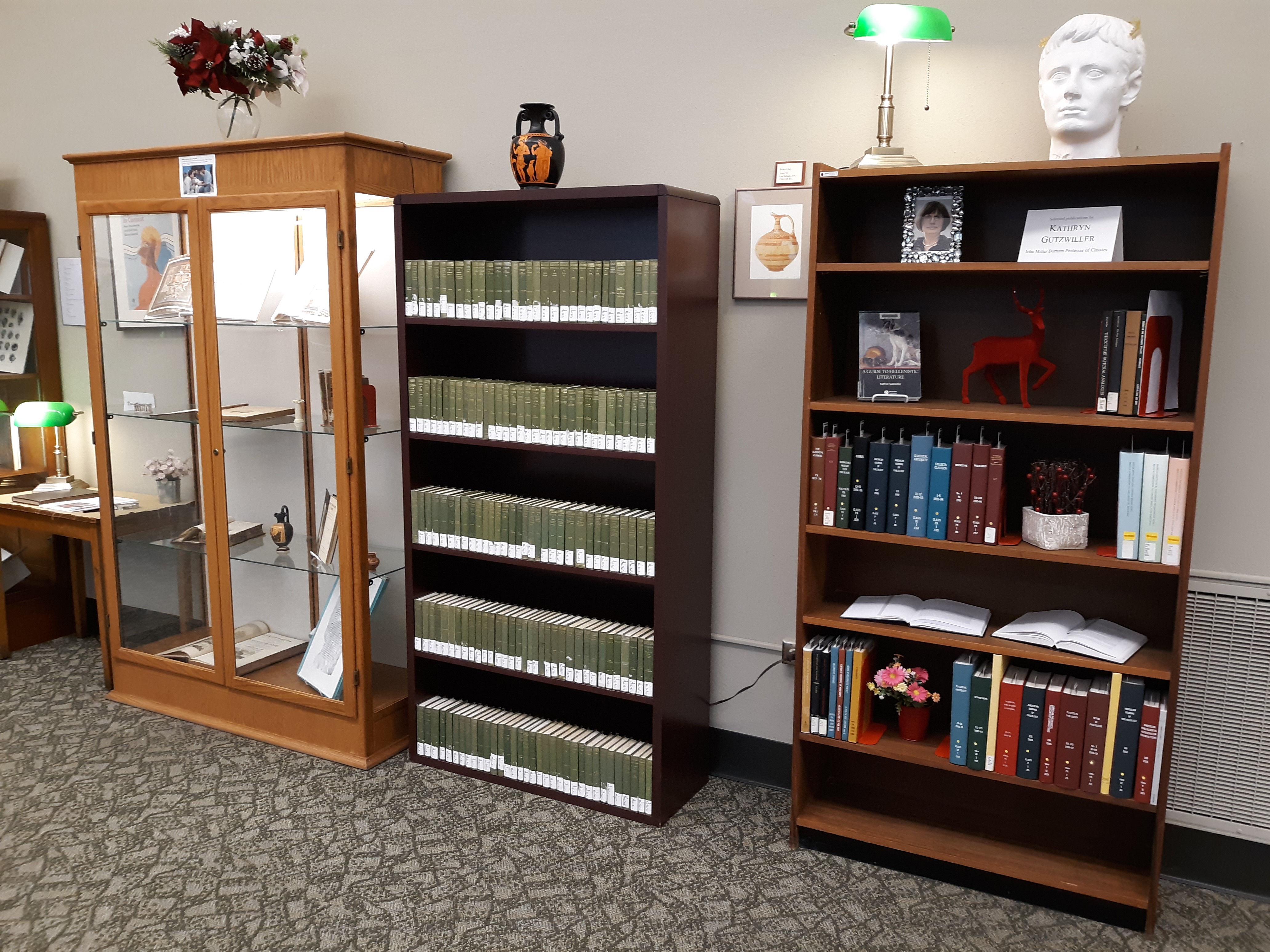
Displays of a selection of Professor Gutzwiller’s works, towered over by a bust of Roman emperor Augustus, and with a deer. Professor Gutzwiller and her husband Bob are great supporters of the deer in their neighborhood of Clifton. In the glass case are rare books and facsimiles of the works of Hellenistic poets, such as Menander and Callimachus, upon whose texts much of Professor Gutzwiller’s research is based. She has published several books on Hellenistic poetry: Studies in the Hellenistic Epyllion (1981), Theocritus’ Pastoral Analogies: The Formation of a Genre (1991), Poetic Garlands: Hellenistic Epigrams in Context (1998), and The Guide to Hellenistic Literature (2007). She edited a volume on a new collection of epigrams by Posidippus found on a papyrus, The New Posidippus: A Hellenistic Poetry Book (2005, rev. ed. 2008), and has written several peer reviewed journal articles, too many to list here.
CONGRATULATIONS KATHRYN GUTZWILLER,
JOHN MILLER BURNAM PROFESSOR OF CLASSICS!
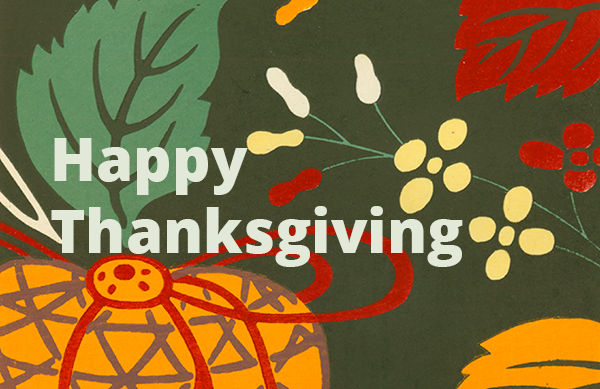 UC Libraries will be closed Thursday, November 28 and Friday, November 29 for Thanksgiving, with the exception of the Donald C. Harrison Health Sciences Library, which will be open Friday, November 29 from noon – 5:00pm. Regular library hours will resume Saturday, November 30.
UC Libraries will be closed Thursday, November 28 and Friday, November 29 for Thanksgiving, with the exception of the Donald C. Harrison Health Sciences Library, which will be open Friday, November 29 from noon – 5:00pm. Regular library hours will resume Saturday, November 30. 











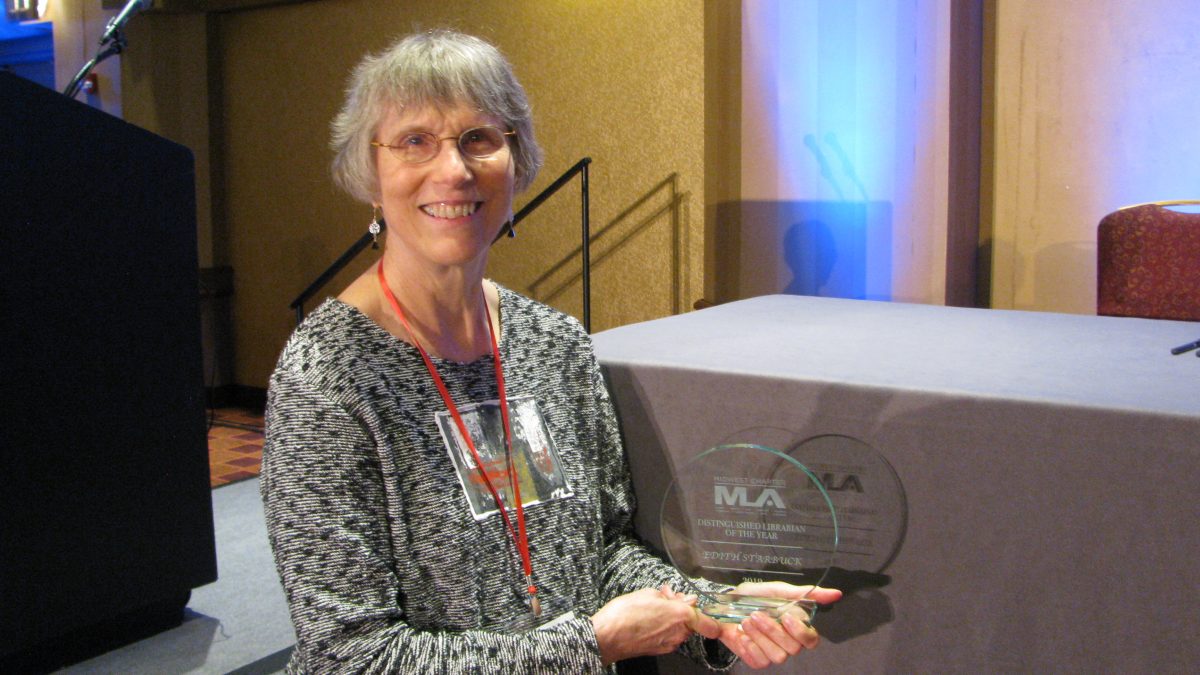
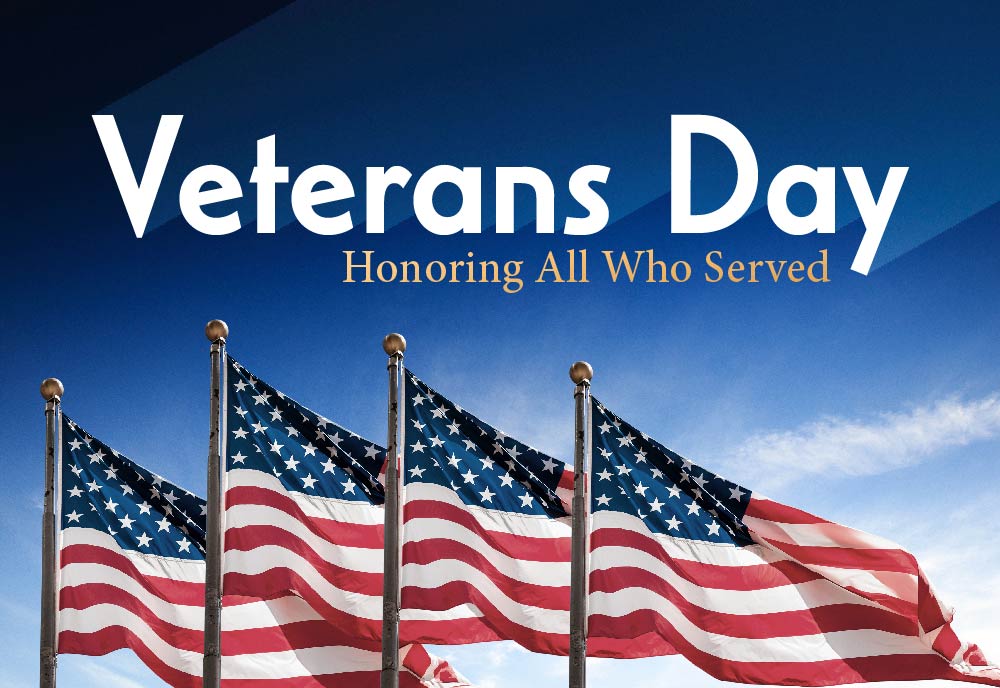 UC Libraries will be closed Monday, Nov. 11 in observance of Veterans Day, except for the Donald C. Harrison
UC Libraries will be closed Monday, Nov. 11 in observance of Veterans Day, except for the Donald C. Harrison 